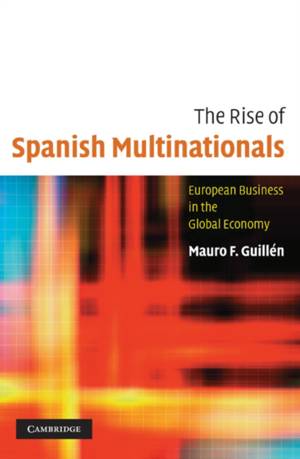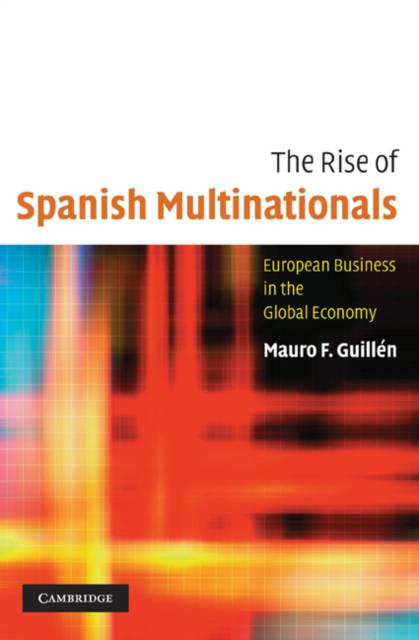
Door een staking bij bpost kan je online bestelling op dit moment iets langer onderweg zijn dan voorzien. Dringend iets nodig? Onze winkels ontvangen jou met open armen!
- Afhalen na 1 uur in een winkel met voorraad
- Gratis thuislevering in België vanaf € 30
- Ruim aanbod met 7 miljoen producten
Door een staking bij bpost kan je online bestelling op dit moment iets langer onderweg zijn dan voorzien. Dringend iets nodig? Onze winkels ontvangen jou met open armen!
- Afhalen na 1 uur in een winkel met voorraad
- Gratis thuislevering in België vanaf € 30
- Ruim aanbod met 7 miljoen producten
Zoeken
The Rise of Spanish Multinationals
European Business in the Global Economy
Mauro F Guillen, Mauro Guill N
Paperback | Engels
€ 64,95
+ 129 punten
Omschrijving
Since 1992, Spanish companies in a variety of industries have acquired a prominent presence in the global economy, especially in Latin America and Europe. Companies such as Telefónica, Banco Santander, Repsol-YPF and Inditex (the owner of the Zara brand) have catapulted themselves to become major international competitors, making Spain one of the world's ten largest foreign direct investors. Mauro Guillén offers not only an explanation of why this has happened, but also an assessment of the economic, financial, political and social consequences for Spain and for Europe. In this 2005 analysis, he also addresses the weaknesses of the Spanish multinationals, especially their lack of proprietary technology and their primary focus on Latin America. The book concludes with the argument that the Spanish multinational firms ought to consolidate their European positions through mergers and acquisitions, opening up new possibilities for further expansion in North America and Asia.
Specificaties
Betrokkenen
- Auteur(s):
- Uitgeverij:
Inhoud
- Aantal bladzijden:
- 292
- Taal:
- Engels
Eigenschappen
- Productcode (EAN):
- 9781107402713
- Verschijningsdatum:
- 5/05/2011
- Uitvoering:
- Paperback
- Formaat:
- Trade paperback (VS)
- Afmetingen:
- 152 mm x 229 mm
- Gewicht:
- 394 g

Alleen bij Standaard Boekhandel
+ 129 punten op je klantenkaart van Standaard Boekhandel
Beoordelingen
We publiceren alleen reviews die voldoen aan de voorwaarden voor reviews. Bekijk onze voorwaarden voor reviews.











